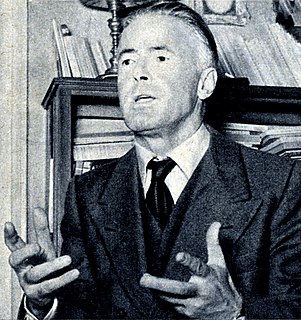A Quote by Honore de Balzac
True love is mixed up with birdlike squabbles, in which the disputants wound each other to the quick; but a quarrel without animus is, on the contrary, apiece of flattery to the dupe's conceit.
Related Quotes
The bonds between ourselves and another person exists only in our minds. Memory as it grows fainter loosens them, and notwithstanding the illusion by which we want to be duped and which, out of love, friendship, politeness, deference, duty, we dupe other people, we exist alone. Man is the creature who cannot escape from himself, who knows other people only in himself, and when he asserts the contrary, he is lying.
That's another thing," she said. "You no longer need other people in your life once you have found your true love. No wonder Magnus feels he cannot open up to you, when you rely so heavily upon these other people. When love is true, you should meet each other people. When love is true, you should meet each other's every desire, every need - A re you listening, young A lexander? For my advice is precious, and not given often.
Men educate each other in reason by contact or collision, and keep each other sane by the very conflict of their separate hobbies. Society as a whole is the deadly enemy of the particular crotchet of each, and solitude is almost the only condition in which the acorn of conceit can grow to the oak of perfect self-delusion.
One of the many burdens of the person professing Christianity has always been the odium likely to be heaped upon him by fellow Christians quick to smell out, denounce and punish fraud, hypocrisy and general unworthiness among those who assert the faith. In ruder days, disputes about what constituted a fully qualified Christian often led to sordid quarrels in which the disputants tortured, burned and hanged each other in the conviction that torture, burning and hanging were Christian things to do.
Love is the expansion of two natures in such fashion that each include the other, each is enriched by the other. Love is an echo in the feelings of a unity subsisting between two persons which is founded both on likeness and on complementary differences. Without the likeness there would be no attraction; without the challenge of the complementary differences there could not be the closer interweaving and the inextinguishable mutual interest which is the characteristic of all deeper relationships.
Tis a barbarous temper, and a sign of a very ill nature, to take delight in shocking any one: and, on the contrary, it is the mark of an amiable and a beneficent temper, to say all the kind things one can, without flattery or playing the hypocrite,--and what never fails of procuring the love and esteem of every one; which, next to doing good to a deserving object who wants it, is one of the greatest pleasures of this life.







































